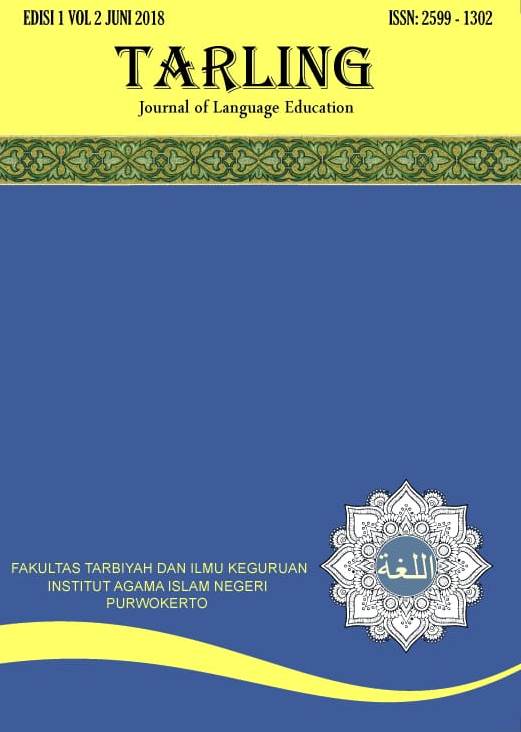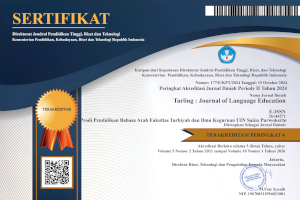Planning an ESP Course Design in SMK Context Teachers’ Roles and Problems
DOI:
https://doi.org/10.24090/tarling.v6i2.7252Abstract
ESP or English for Specific Purposes is distinctive in that it considers students' learning needs because ESP equips students with the necessary skills to compete in the workplace. In other words, based on the student's major, the teacher must tailor English instruction to be fit for employment. How the teachers preparing English lessons for vocational students have not been fully disclosed in prior study, despite some of the issues teachers confront when teaching English at vocational schools. Therefore, the purpose of this study is to analyze the teachers’ roles and also problems in planning the instructions for their students. In answering the released research questions, qualitative research using the interview method and also an open-ended questionnaire were conducted on 3 English teachers from 3 different SMKs with different majors. These three English teachers have a combined teaching experience of almost exactly ten years. Online interviews and questionnaires with questions about learning preparation based on the Dudley-Evans hypothesis were completed via phone and email. The results of the surveys and interviews were then examined by classifying the data according to theory. The study's findings reveal that these teachers encounter similar challenges when putting together course plans that are appropriate for their students' majors, selecting subject matter that is relevant to their line of work, and selecting learning resources that will enable them to help their students meet set learning objectives.Downloads
Published
2022-12-31
Issue
Section
Articles
License
Copyright (c) 2022 Khairunnisa Dwinalida, Sholeh Setiaji

This work is licensed under a Creative Commons Attribution-ShareAlike 4.0 International License.
Authors who publish with this journal agree to the following terms:
- Authors retain copyright and grant the journal right of first publication with the work simultaneously licensed under a Creative Commons Attribution License that allows others to share the work with an acknowledgement of the work's authorship and initial publication in this journal.
- Authors are able to enter into separate, additional contractual arrangements for the non-exclusive distribution of the journal's published version of the work (e.g., post it to an institutional repository or publish it in a book), with an acknowledgement of its initial publication in this journal.
- Authors are permitted and encouraged to post their work online (e.g., in institutional repositories or on their website) prior to and during the submission process, as it can lead to productive exchanges, as well as earlier and greater citation of published work (See The Effect of Open Access).










